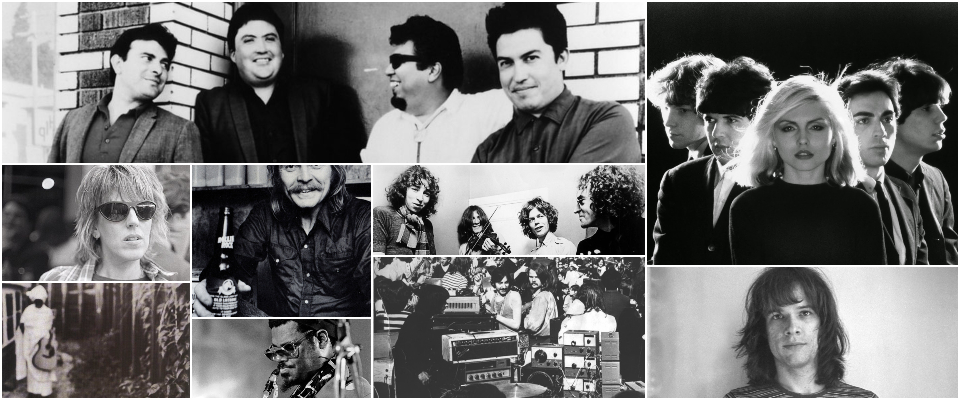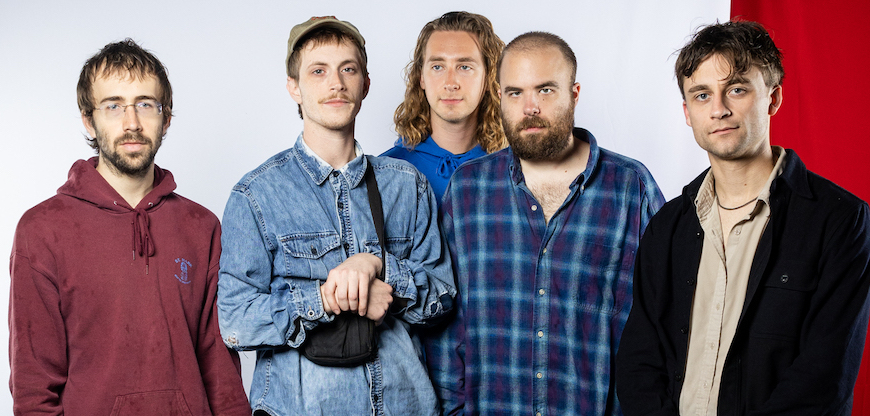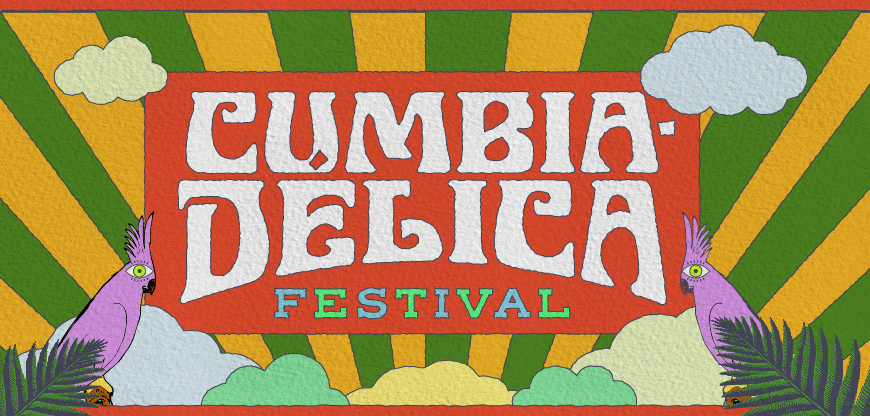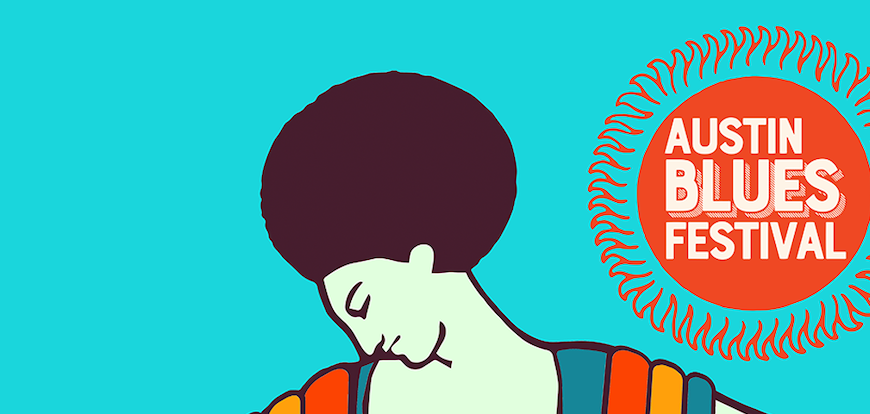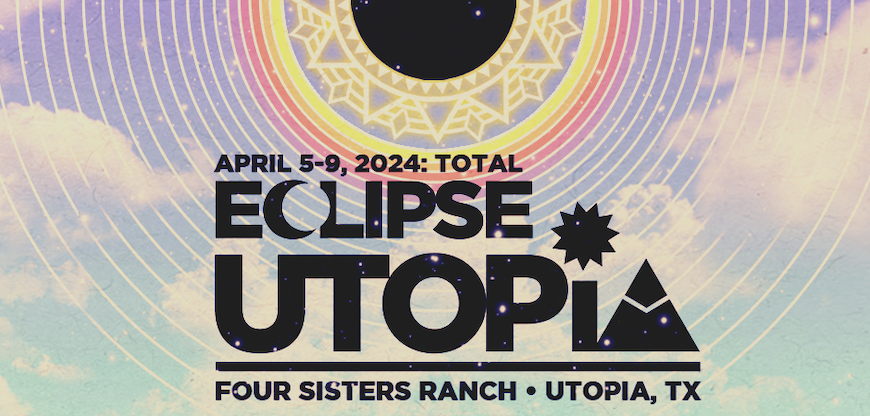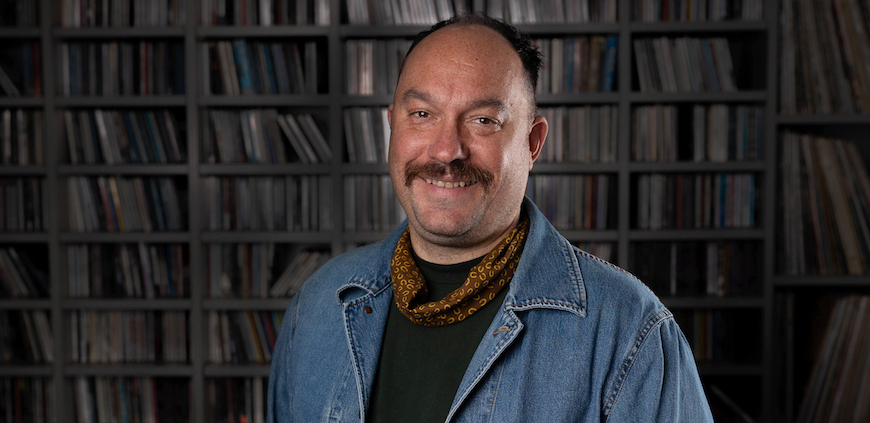By Art Levy
As the producer of My KUTX, each week I get to sit in a room with a guest DJ and listen to music for an hour, and it is an absolute joy. It seems like an obvious thing, but when was the last time you only listened to music without looking at your phone, without doing dishes, without doing anything except listening? Currently, attention is a scarce resource and music is valued as sonic or emotional wallpaper, something to fill the background as you do something else. I’m just as guilty of this kind of listening as anybody, but producing our guest DJ sets forces me to sit still and really hear the music. My brain slows way down and the songs fill the room, hitting me on a deeper, more lasting level.
The human component is key to My KUTX as well. When a guest DJ puts together an episode, they offer context, a personal touch, and an element of surprise unmatched by any algorithm. Over the past half decade or so, this particular act of listening and sharing has been a fantastic way to discover new music and to find new subtleties in music I have heard before. Below are some of my favorite songs that have stuck with me.
Lucinda Williams – “Concrete And Barbed Wire” // picked by Margo Price
I came to Lucinda’s music in a roundabout way. I first fell in love with the poetry of Miller Williams, her father, before realizing that Lucinda’s words are just as beautiful, maybe even more so given her worn-in voice and ancient-sounding melodies. It makes sense that she’s something of a patron saint for younger country singers like Margo Price. On “Concrete And Barbed Wire,” you can hear the timelessness and power of Lucinda’s art. Her opening lines are a knockout punch: “This world divides us on two different sides / this wall is not real / how can it be real? / it’s only made of concrete and barbed wire.” And for three minutes and nine seconds, she makes you believe it.
Blondie – “Union City Blue” // picked by Queue Queue
I consider myself a pretty big Blondie fan, but somehow I had never ventured much further than their 1978 classic Parallel Lines. Austin punk trio Queue Queue introduced me to “Union City Blue,” a should’ve-been-hit song from their 1979 follow-up, Eat To The Beat. It’s got all the classic Blondie elements in it–a sugary melody, chiming guitars, an incessant rhythm–and they’re all blown up to stadium-sized proportions. Maybe it’s Debbie Harry’s performance, but there’s also something kind of tragic about the song, an emotional meltdown disguised as a fist-pumping anthem.
Rahsaan Roland Kirk – “One Ton” (live at Newport Jazz Festival, 1968) // picked by Iron & Wine
The award for the most eclectic My KUTX probably goes to Sam Beam of Iron & Wine. He played obscure Andean folk music, Cocteau Twins, deep cuts from Otis Redding, and more, all held together by his giddy excitement about sharing each of the songs. There’s something even giddier about Rahsaan Roland Kirk, one of Beam’s best picks. Kirk was an infamous jazz performer, ranting about politics, cracking jokes, and playing multiple saxophones and flutes at once. “One Ton,” recorded live in 1968, is off-the-wall bonkers. Halfway through, Kirk breathlessly exclaims, “come on nose take care of it,” before ripping off a nose flute solo. The song is somehow hilarious, terrifying, and exhilirating all at the same time–basically the human experience in a tidy five minutes.
Silver Apples – “Seagreen Serenades” // picked by Loma
Silver Apples’ 1968 debut is the sound of the future waking up. At the time, synthesizers and oscillators were used for making experimental music or kitschy, “space age” sound effects. This duo was one of the first bands to understand the pop potential of this new technology. Yet Silver Apples’ version of “pop” came out in bizarre shapes, paving the way for electronic boundary-pushers like Radiohead and Aphex Twin. “Seagreen Serenades” is an old folk song that sounds like it’s been blasted into outer space and fell back to Earth again, a little bit corroded and cosmic from the journey.
The Flamingos – “I Only Have Eyes For You” // picked by Exene Cervenka and John Doe of X
I’ve probably half-heard “I Only Have Eyes For You” dozens of times in my life, on soundtracks or commercials or maybe on the radio. It’s one of those songs that seems to follow you unseen, but when you finally notice, it won’t leave you. I think this song is one of greatest recordings ever made. On the one hand, it’s a joyous example of ’50s doo-wop: romantic, direct, a little bit funny in the way the backing singers accent the “sh-bop-sh-bop” phrases. And then you notice the reverb, the way it envelops the entire band in a glowing haze, just like the single-minded love the song is expressing. With every passing second, the Flamingos melt into each others’ voices and instruments, becoming the music, not just playing it. There’s no individual, no ego here. There’s a mass of sound, like a church, like a collective prayer.
Michael Hurley – “Blue Driver” // picked by Adam Torres and Thor Harris
Michael Hurley’s songs tend to ramble and digress, taking their time to express a love of nature or small everyday scenes. They sound like how his paintings look: homemade, funny, and shot through with a rural American sensibility. “Blue Driver” also simply sounds like a sunny day where the blue skies stretch for miles.
Mixed Grill – “A Brand New Wayo” // picked by Zapot of Golden Dawn Arkestra
Every time Zapot from Austin’s Golden Dawn Arkestra gets behind the decks, I know I’m in for a journey. Zapot is a lover of all things psychedelic and funky, so his guest DJ sets tend to sound like cosmic dancefloors. “A Brand New Wayo” by Mixed Grill–what a band name!–is a total party-starter, just a snapshot of Nigeria’s potent disco and afrobeat mashup from the late ’70s.
Marc Ribot Y Los Cubanos Postizos – “Postizo” // picked by Adrian Quesada
There’s a reason Tom Waits frequently collaborates with Marc Ribot. The guitarist pulls the weirdest and wildest sounds from his instrument, perfectly matching Waits’ feral songs. But for all his avant-garde tendencies, you can still hear Ribot’s love of jazz, punk, country, and more in his singular playing style. Fellow music obsessive and inventive guitarist Adrian Quesada tipped his hat to Ribot during one of his guest DJ sets, highlighting how he can make any genre his own. In the late ’90s, Ribot created a band called Los Cubanos Postizos–“the plastic (fake) Cubans”–to explore the rich sound of Cuban music, but from a slanted angle. “Postizo” is danceable and weird-as-hell, and the band cheers on Ribot’s guitar with shouts of “postizo!”
Cluster – “Hollywood” // picked by Andrew W.K.
Andrew W.K. is known for, well, partying hard, but behind the cartoonish conception is a man with a profound love of life. He thinks we suffer a “crisis of joy” in our society, and the spreading of joy animates his music, live events, and motivational speaking. There’s a reason the American Association of Suicidology named Andrew its Person Of The Year in 2018. “In a world of confusion, distress, and extraordinary challenges,” he said in an acceptance speech, “there are few efforts more worthwhile than devoting oneself to the raising of the collective human spirit.”
That’s what his guest DJ set attempts to do, ranging from Laurie Anderson and George Winston to Chic and Little Richard. He also introduced me to Cluster, a band that was born of the German krautrock movement in the early 1970s. In post-WWII Germany, a new generation had to cope with the traumatic wreckage of their society, but within that destruction, they found potential. Cluster invented new forms of electronic music from a cozy home studio in the countryside, alchemizing the earthy sounds that surrounded them into strange and forward-thinking songs. The band went on to work with or influence Brian Eno and David Bowie. More importantly, Cluster spread the joy of invention to new generations.
Arthur Russell – “That’s Us/Wild Combination” // picked by Austin Kleon
Austin Kleon is an Austin-based author, artist, and poet who often writes about the wildness of creativity: how to harness it, how to channel it, how to keep going. It makes sense he’d pick a song by Arthur Russell, whose polymathic music sounds like pure, uncluttered inspiration. In his brief life, Russell recorded thousands of songs, ranging from experimental classical music and country to lo-fi disco and abstract electronic soundscapes made by warping his cello. The phenomenal documentary Wild Combination details how Russell brought all of these sounds together through a lens of Buddhist training. “That’s Us/Wild Combination” is an example of Russell’s “Buddhist bubblegum music,” as his friend Allen Ginsberg put it. The song is catchy and pop-friendly but also nonlinear, piling on idea after idea as they occur in Russell’s mind. It’s a dance song, it’s a love song, it’s a roadtripping monologue, and it all sounds like a demo more than a finished product. The slash in the song title is an invitation to drop binaries and embrace hybrids.
Marvin Pontiac – “No Kids” // picked by Amelia Meath and Nick Sanborn of Sylvan Esso
John Lurie is an actor, painter, and musician, and he combines all of these sensibilities in his music. In 1999, he released The Legendary Marvin Pontiac: Greatest Hits, where he embodied the character of Marvin Pontiac, an African-Jewish singer with a penchant for rambling, blues-inspired songs. But a little bit of Lurie peaks out in the meditative “No Kids.” He sings about his loneliness and his pain from Lyme disease, yet he’s also surrounded by an incredible band. They all seem to conjure a force field around Lurie’s deep voice, so the blues become a healing thing.
Damien Jurado – “Where You Want Me To Be” // picked by Meg Duffy of Hand Habits
Raised on a steady diet of the Beatles and, later, punk rock, I love quick, simple songs. Damien Jurado’s “Where You Want Me To Be” marries Beatles sweetness with punk concision. It doesn’t even sound like he wrote the song. Instead, it feels like it’s always existed, and Jurado simply plucked it out of the air.
Fairport Convention – “Tale In Hard Time” // picked by Santiago Dietche of Daphne Tunes
In the late ’60s and early ’70s, Fairport Convention brought ancient English, Scottish, and Irish folk songs to a new generation, showing how compositions hundreds of years old could still resonate. They also wrote songs that sounded just as rough-hewn and worn, like “Tale In Hard Time.” The harmonies are otherworldly, and Richard Thompson’s guitar sharpens the words like a blade: “The blind man can’t see / who demands to his eyes / I’ll show you another who sings as he cries.” Folk songs like this one grapple with darkness by dressing it lightness. It’s an expression of a simple truth: we’re all here today because somebody persevered yesterday.
Los Lobos – “The Town” // picked by El Federico
Around Austin, you’ll notice Federico’s vibrant, graffiti-esque art stenciled on the side of buildings. The works often depict his love of musicians like Johnny Cash and the Clash in a style that nods back to his El Paso upbringing. Federico’s guest DJ set was partially inspired by his experience as a Mexican-American. L.A.’s Los Lobos have lived this kind of hybrid life too, and they’ve put it into song form over and over across four decades. “The Town” is art at its best: I did not grow up in Los Lobos’ circumstances, and yet I can feel their pain, fear, and love for their neighborhood. The complicated emotions are delivered in a very uncomplicated way, which makes the song hit that much harder. It’s also a microcosm of the dynamic dance between music and listener. Los Lobos poured their life into the song, Federico shared the song, and the listener can then enter into a relationship with both Federico and Los Lobos. Music is ephemeral; music is world-building.
Support KUTX’s ability to bring you closer to the music. Donate today.
